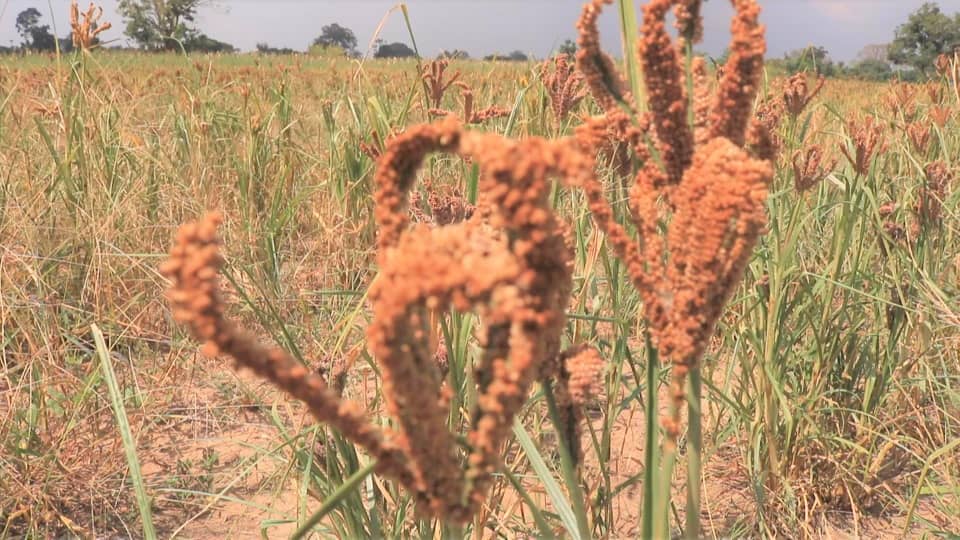Lack of granaries leaves Teso struggling to keep its indigenous foods on the table
By Eddy Enuru
The lack of proper storage facilities for farmers in Teso has threatened the existence of indigenous food crops in the sub region.
For many years, while engaged in subsistence farming, locals in Teso relied on granaries locally referred as Edula crafted out of local twigs and mud and wattle to store their crops soon after harvest. This enabled families to have enough food supply throughout the year, even during long dry spells.
Traditional cereal crops like millet and sorghum together with vegetables like cow peas (Eboo), spider plant (Ecadoi), hibiscus species (Malakwang), pumpkins, which have been the staple food crops in the Teso for centuries were kept and preserved in the granaries.
These crops have high nutritional value.
The granaries also acted as seed banks meaning locals were guaranteed seeds to plant in the next planting season. Now the absence of granaries is impacting on food security in the sub region.
Grace Atyang a farmer from Onganyakonye village, Omaseniko parish in Kapelebyong district whose family largely depends on indigenous food crops said they used to keep traditional food crops like millet and sorghum.
"These crops could be eaten in different forms like porridge and bread. So we never lacked what to eat," Atyang said.
Scovia Adikin a senior research officer and programme leader for dry land cereal crop commodities at the National Semi Arid Agricultural Research Institute (NaSARI) said millet is one crop which farmers had embraced growing for long because of it’s a very nutritional.
"Millet has a high iron content, higher protein and has a low glycemic index. These qualities make millet consumption highly recommended for diabetic patients and pregnant women. No wonder it may be the reason Iteso embraced it for years," Adikin said.
"You don’t need much of it to feed many people," she said.
 Millet is a reliable crop
Millet is a reliable crop
Agnes Okaleng, another farmer from Otapengo village in Kapelebyong sub county said the indigenous crops are reliable as they are resilient to climate change.
"Traditional crop varieties of for example groundnuts and sweet potatoes can withstand dry spells. It is the reason I keep growing them alongside the new varieties, just in case," Okaleng said
In recent years there has been a crisis brought about by the disappearance of granaries in Teso. This has seen a notable decline in the production of indigenous crops largely due to lack of seeds.
What happened to the granaries in Teso?
Granaries were introduced in Teso by the British colonialists and served two main purposes. First, they acted as a food reservoir for families for the period between planting and harvesting; secondly, they served as a store for seeds for the next planting season.
In the 1960s, there was plenty of food in the sub region which was referred to as the food basket of Uganda.
According to Moses Okello, the senior agriculture officer at Soroti district, farmers abandoned granaries because of theft.
"Basically what made granaries to disappear was theft. When you keep food in the granary there is no security...no padlock so anybody could jump in and carry away the storage," Okello said.
Other reasons such as arsonists setting granaries alight in the night forced farmers to share room with their season’s harvest. On the other hand, because of little room, many farmers ended up selling their harvest to buy livestock.
Stanley Okwi Etole a farmer from Kakungur village, Malera sub county in Bukedea district, believes granaries disappeared as a result of shortage of craftsmen, many of whom died during insurgency.
He adds that the lack of materials due to environmental factors also played a part.
"Forests where craftsmen used to find materials for making granaries have all been destroyed. Even the old men who used to know how to make granaries have since died. So things have become very difficult," Okwi said.
The impact
Okwi laments that due to lack of proper storage for crop harvest, many farmers have resorted to growing crops which they can either sell or consume straight from the garden like sweet potatoes and beans. This has brought about constant shortage of food in communities.
"In the days of granaries, there was no famine because food of all varieties including cereals and vegetables and greens were dried and stored to be eaten during long dry spells and as future seeds. Nowadays we are in trouble with famine and malnutrition because we have abandoned such," Okwi explained.
 Women pounding cereals
Women pounding cereals
Joseph Morris Enabu, the regional nutritionist for Teso, said over the years, there has been a rise in cases of malnutrition due to shortage of traditional foods.
"Malnutrition has become common because the means of food production has been affected and people are either no longer eating enough food or they are not eating the right food," Enabu said.
Nutritional data is difficult to find in Teso sub region but according to UNICEF, over 561,000 children lose their lives every year in Uganda due to malnutrition.
The 2020 Uganda Health Demographics survey revealed that 12 percent of Ugandan women are undernourished.
Where is the problem?
Moses Okello the senior agricultural officer Soroti district said the introduction of other crops has suppressed the demand for indigenous food crops in the market.
"A number of indigenous crops dropped their yield so many farmers have instead adopted new crop varieties which are high in yielding," Okello told this website.
He listed low market value, attack by pests and diseases and failure to withstand climate change as some of the factors which have led to the decline in the production of indigenous food crops.
Adikin, the senior research officer at NaSRI said the indigenous crops have fallen in the market because not much has been done to diversify their products which has left them less competitive.
Participatory Ecological Land Use Management (PELUM Uganda), an association of civil society organisations working to improve the livelihoods of small-scale farmers and sustainability of farming communities, has in its recent studies noted that globalisation and modernisation of the food system around a few crops, was directing research funding and consumer spending to only a handful of crops, some with lower calorific value, at the expense of food biodiversity and indigenous foods.
"The market is inclined more towards fewer and fewer indigenous staples and once we don’t consume these foods, farmers will produce less of them, pushing such varieties closer to extinction," notes one of the studies conducted by PELUM in 2020.
What can be done?
Atyang, the farmer, said farmers need to form groups where they can be supported to maintain seeds banks.
This, she says, can help save the highly nutritious traditional food from disappearing.
"Let government come in to train farmers on storage of crop harvest just like in the days of granaries unlike the use polythene bags. It’s also important to help rural farmers to set up seed banks for indigenous crops, this will help fight malnutrition since there will be enough nutritious food.”
Nonetheless, Okello the Soroti district agricultural officer admits that farmers have to be sensitised and trained on the agronomy and preservation of indigenous food crops.
He said because traditional food crops are a source of a genetic bank for improvement of other crops, more research should be done.
According to the 2011-2016 Uganda Nutritional Action Plan, government has sought to intervene into the levels of malnutrition in the country.
This was in line with the Uganda Food and Nutrition Policy (UFNP) that was approved by government in 2003.
The ultimate goal of the Uganda Nutrition Action Plan (UNAP) is to reduce levels of malnutrition among women of reproductive age, infants, and young children by 2016.
However, with 12% of women in Uganda still malnourished in 2022 and an estimated 56,000 children set to die of nutrition related deaths by the end of this year, it is high time government put more emphasis on the research and production of indigenous food crops which are a natural solution to nutritional needs especially in rural communities like Teso.
This story was supported by the International Women's Foundation ,Gender Justice Reporting initiative.













